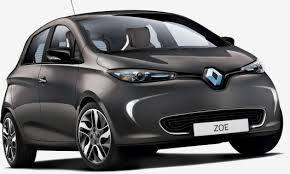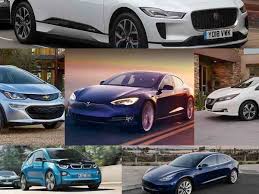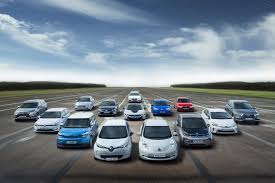Electric cars will not save the planet without renewable energy
 Several countries, including France, Norway and the UK, are planning to abandon fossil-fuel-powered cars by 2040-50 to reduce air pollution and combat climate change. The idea is to replace cars with internal combustion engines by electric vehicles. However, this is unlikely to help the environment, as electric vehicles are charged with electricity, which is produced from the same “dirty” fossil fuel.
Several countries, including France, Norway and the UK, are planning to abandon fossil-fuel-powered cars by 2040-50 to reduce air pollution and combat climate change. The idea is to replace cars with internal combustion engines by electric vehicles. However, this is unlikely to help the environment, as electric vehicles are charged with electricity, which is produced from the same “dirty” fossil fuel.
By 2040, global electricity consumption by electric vehicles will rise to 1,800 TWh — about five times the current annual electricity consumption in the UK. Using UK data as a benchmark, carbon emissions will amount to an additional 510 megatons coming from the electricity sector worldwide. But this figure can be significantly reduced if electricity is produced exclusively from renewable energy sources and not from fossil fuels.Recall, according to the study of scientists consulting company Wood Mackenzie in 30-50 years there will be a complete transition from oil and gas to renewable energy sources.
Growing problem
510 megaton is approximately 1.6% of global carbon emissions in 2018. While this may seem insignificant, the intergovernmental panel on climate change (IPCC) recommended reducing carbon emissions to zero by 2050 to limit global temperature increases to 1.5°C (above the pre-industrial era). Thus, the 1.6% increase in carbon emissions is significant and possibly catastrophic.
This increase may be offset by a reduction in emissions resulting from the phasing out of polluting vehicles. Reducing global carbon emissions is not easy — in fact, emissions reached a record high in 2018, despite the highest level of renewable energy consumption.
Electric vehicles also generate carbon dioxide during energy-intensive production (although their emissions are much lower than those of conventional cars), as are renewable energy technologies themselves.
Supply and demand
Another major problem of electric vehicles is their impact on the availability, production and supply of rare earth metals and other scarce natural elements. Electric vehicles and their batteries contain precious metals such as lithium and cobalt. Cobalt shortages are already threatening the production of electric vehicles, and car manufacturers are currently exploring alternative designs that do not use scarce elements.
This means that it is essential to expand processing plants designed to process metals and other scarce items for reuse. In addition, detailed plans for the conversion of conventional vehicles into electric vehicles are needed.
Intelligent charging
There are other problems with electric vehicles that need to be addressed if they are to help reduce global emissions and prevent a climate catastrophe. People can charge their electric cars in the evening hours after they return from work. As more people start using electric vehicles, the load on the power grid is likely to reach its maximum in the evening. And this can cause problems for distribution and transmission systems at the community or city level.
Power systems may need to be upgraded. Or, energy suppliers may introduce a tariff for use time that is higher during peak hours and lower during off-peak periods when electricity demand is lower. This will encourage consumers to charge their electric vehicles during off-peak hours.
Intelligent charging is another possible solution: the idea is to charge more vehicles with renewable energy sources such as wind and solar energy, and reduce charging when local renewable energy sources do not produce enough electricity. The charging time of electric vehicles can be compared to the peak generation of renewable energy using intelligent systems and artificial intelligence to balance the local electrical network.
Overcome obstacles
The high cost of electric vehicles and the lack of available charging stations are additional obstacles that the Oxford Institute for energy research has identified for the massive expansion of electric mobility. The cost of electric vehicles cannot be reduced if they are not mass-produced, and they cannot be mass-produced if costs are not reduced. The same goes for the installation of charging stations — authorities will need foresight to understand that additional charging stations need to be installed to expand electric mobility.
Governments can help prevent these problems by subsidizing electric vehicles or providing financial incentives to buy “clean” transport — as has already been done in China. Even at the city level, authorities can encourage people to use less polluting vehicles, such as electric cars, through taxes or special clean air zones, as is currently the case in London.
Electric vehicles have great potential to reduce pollution and give people a more sustainable way to travel, but electricity production must also be “clean”. It is unwise to rely entirely on scarce natural elements necessary for the production of electric vehicles, it is worth exploring alternatives. More reprocessing plants are needed to maximize the use of rare elements and governments need to explore ways to ensure a smooth transition to cleaner movement.




